Correspondents
The NPDL is accepting applications for correspondents! While engaging with the parliamentary debate community on a national level, correspondents will build skills as leaders, educators, and advocates and support the NPDL's most critical projects, including the Tournament of Champions, curricular resources, and historical documentation of parliamentary debate.
2023-24 Program Goals
Support NPDL’s broader mission of developing a supportive and inclusive culture, maintaining historical records, and disseminating information and resources that lower participation barriers in the parliamentary debate community
Decentralize the most labor intensive portions of TOC logistics (points entry)
Develop a cohort of experienced correspondents to potentially expand into editorial and supervisory roles for upperclassmen in 2024-25.
APPLY HERE
Applications will be accepted on a rolling basis. The first-round deadline is September 1. Correspondents may apply to one or more correspondent areas.
General Responsibilities
Behavior
Students who are not in good standing with their schools are not permitted to participate in the correspondents program.
Communication
Correspondents must:
Attend at least one Zoom check-in meeting every 4-6 weeks with students working on comparable projects
Submit a monthly progress report.
Respond to Slack inquiries within 48 hours.
Data
Correspondents will:
Learn to implement Article XXI: Rankings
Learn to use the Points Calculator
Record the points for each assigned tournament within 14 days from the conclusions of the tournament (minimum 1/month)
Record the resolutions for each assigned tournament by the second progress report following the date of assignment. (minimum 1/month)
Project Areas
Advanced Data
Advanced Data correspondents will take on an additional monthly points and resolution assignment if needed as well as pursuing a long-term project in data collection, transformation, or and/or analysis. Potential projects include:
managing and annotating NPDL recordings
refining existing databases, tagging systems or collection methods
creating new datasets via surveys
analysis of public resources
transformation of existing datasets
Curriculum
A curriculum correspondent is responsible for writing and editing debate curriculum, reviewing long-term curriculum goals, and informing the board about student curriculum resource needs. Expectations include writing or editing one mini module or practice plan per month OR development of two complete reference modules per year.
Mini modules or practice plans should include materials around a cohesive theme that fill 1-2 hours and can include:
Specific topic area information
Theory of argumentation and debate strategy
Discussion questions
Drills or activities
Materials such as sample slides, style guides, or worksheets
Suggestions for substitutions depending on ability level
Curriculum in this category should include information about the intended audience, approximate lesson timelines, suggestions for instructors to check for understanding, and explicit learning outcomes.
Reference modules are intended to provide a deep dive into a broad area of debate, such as team administration, culture building, casebuilding and argumentation, debate theory, philosophical models, research methods, middle school program development, or common parli topic areas, contextualized through descriptions, examples, case studies, etc. Reference modules should be clear about prerequisites needed to understand them. You can conceptualize these as textbook chapters.
Media
A media correspondent helps create material for league social media accounts. We are looking for people who have basic experience with engaging short-form writing, graphic design and/or video creation. Generally, a media correspondent will be expected to create 2-4 social media posts per month.
Media topics may include:
Congratulations to top placers at recent events or autoqualifiers, in collaboration with data correspondents
Highlights of published articles, in collaboration with reporting correspondents
Short summaries of board meetings and NPDL newsletters
Announcements, including upcoming NPDL events, curriculum releases, NPDL policy changes, or calls for volunteers not otherwise highlighted in newsletters
Student, community member, team, or alumni spotlights
Reporting
Reporting correspondents investigate and disseminate knowledge on topics relevant to the parli community. A reporting correspondent should expect to write at least two articles during the season.
Potential topics include:
how to implement a particular debate strategy
history of parli in a particular region or of a particular kind of argument
an exploration of how resolutions are drafted
current events in parli
an in-depth interview with a coach or current or former competitor
a spotlight on a team or community project
a research project gathering parli-related statistics
a nuanced criticism of a particular community practice
Deadlines:
Article topics must be finalized by the end of October.
A plan of action (a list of people to interview, a list of data sources, etc.) must also be drafted by Nov 15
Rough drafts must be submitted by the end of December for the first article.
Final drafts must be submitted by the end of January for the first article.
Rough drafts should be submitted by the end of February for the second article.
Final drafts should be submitted by March 15 for the second article.
